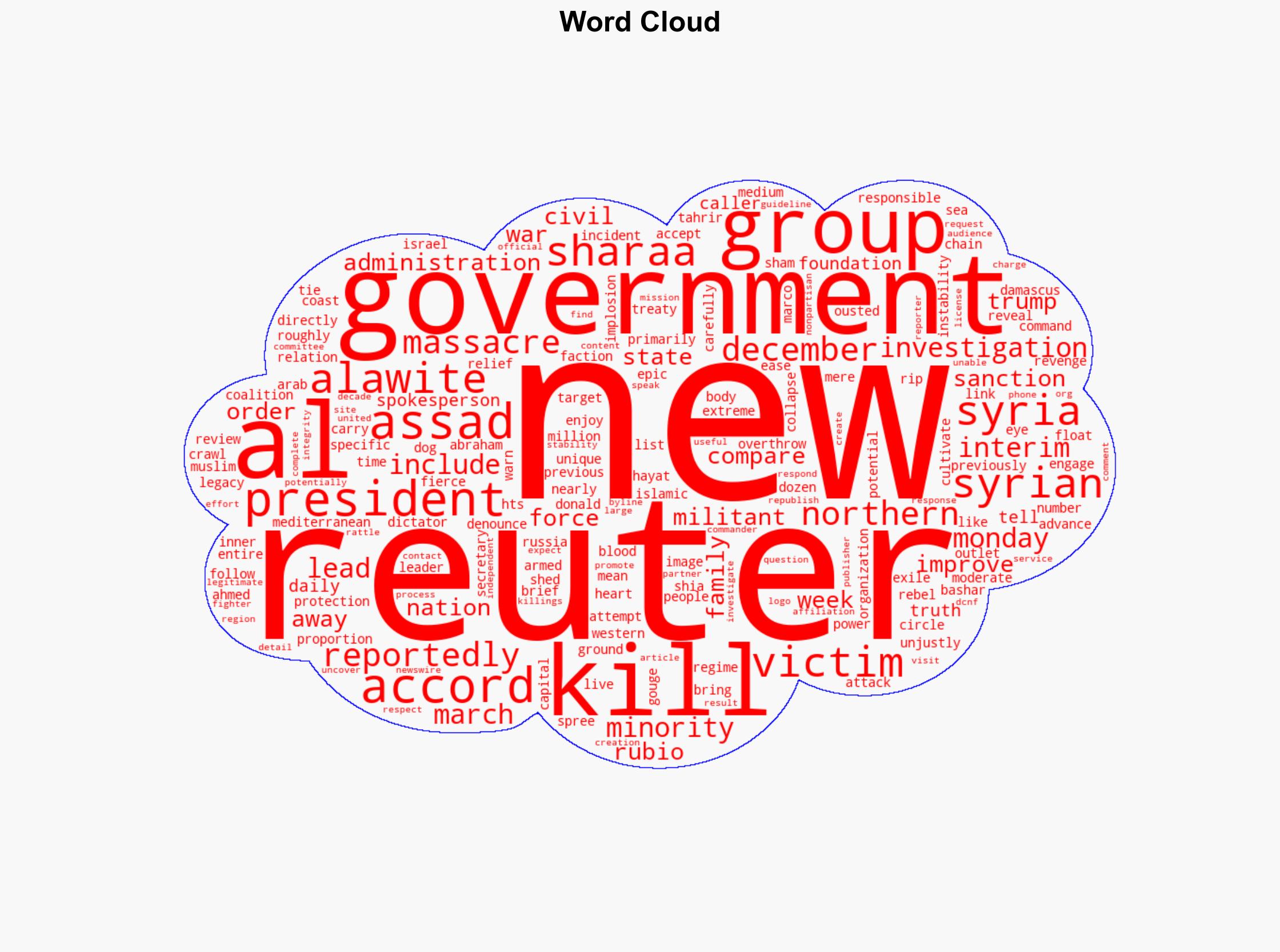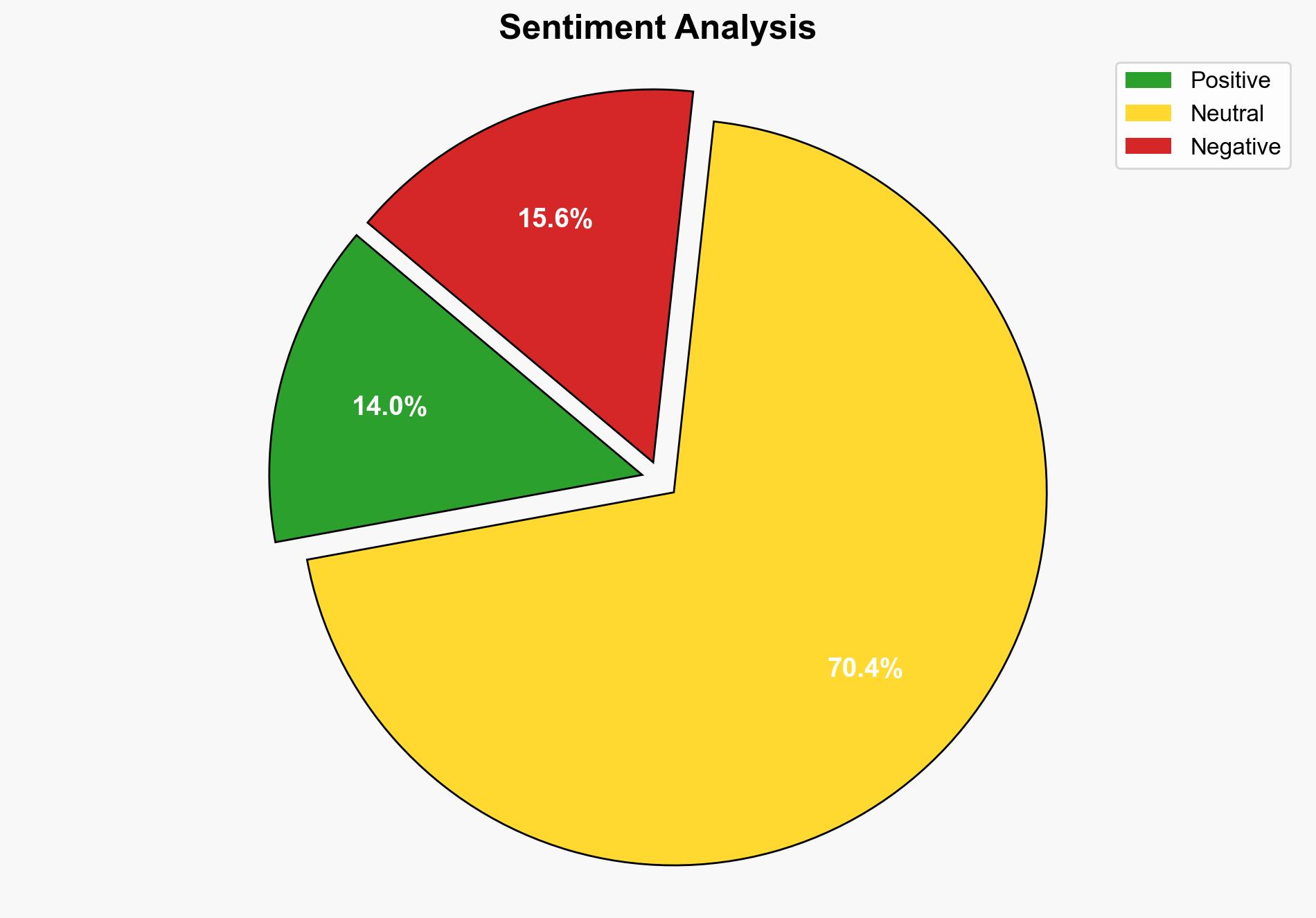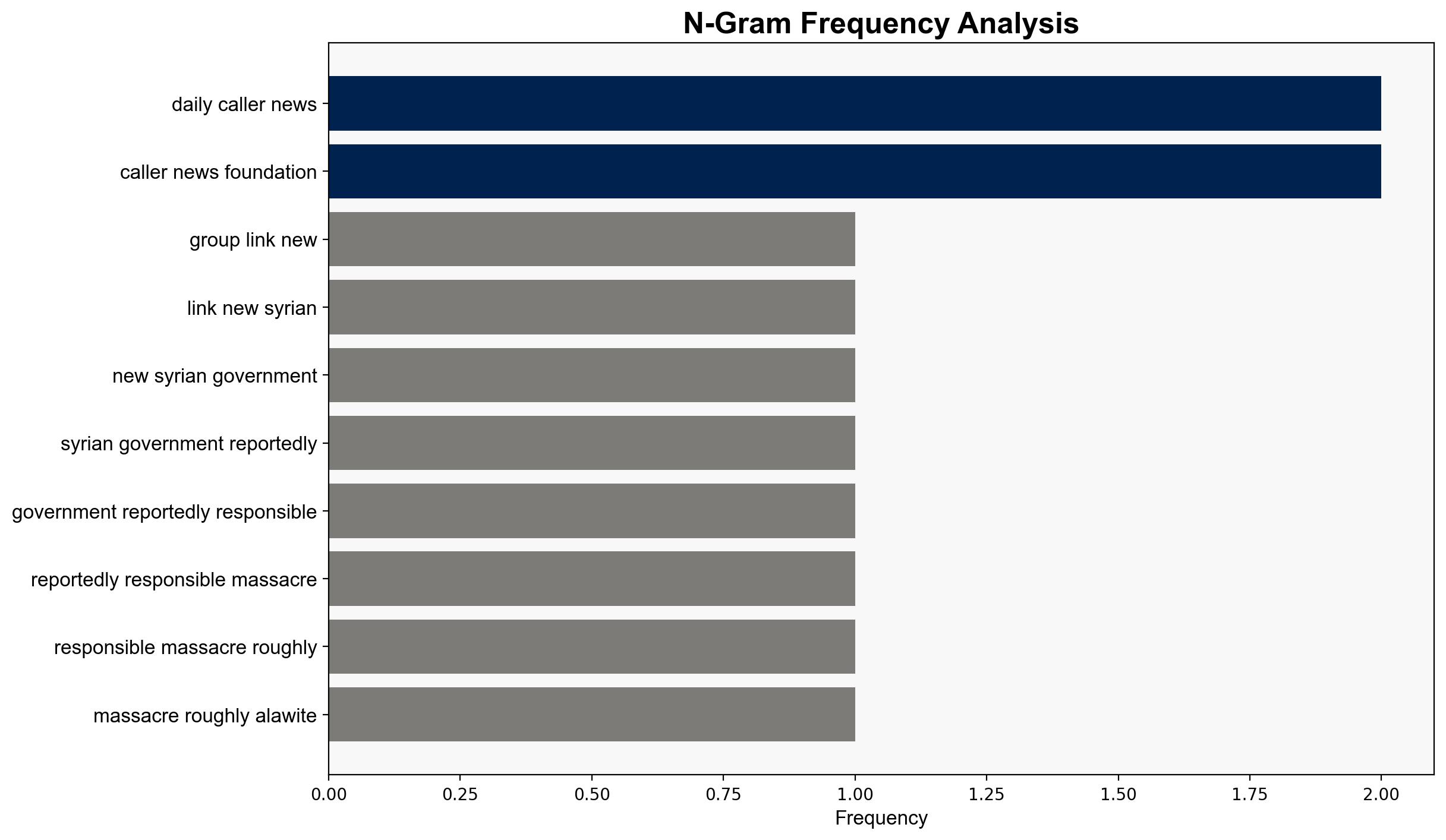Syrian Government-Linked Actors Brutally Massacred Members Of Minority Protected Under Assad Investigation Finds – The Daily Caller
Published on: 2025-06-30
Intelligence Report: Syrian Government-Linked Actors Brutally Massacred Members Of Minority Protected Under Assad Investigation Finds – The Daily Caller
1. BLUF (Bottom Line Up Front)
A Reuters investigation has revealed that Syrian government-linked actors are responsible for the massacre of Alawite minority members in northern Syria. This incident occurred following the overthrow of President Bashar al-Assad, with interim President Ahmed al-Sharaa’s administration implicated. The massacre raises significant concerns about regional stability and the potential for further sectarian violence. Immediate strategic engagement is recommended to prevent escalation and address humanitarian concerns.
2. Detailed Analysis
The following structured analytic techniques have been applied to ensure methodological consistency:
Causal Layered Analysis (CLA)
Surface events indicate a targeted massacre of Alawites, a group previously protected under Assad. Systemic structures reveal a power vacuum and revenge dynamics post-Assad’s ousting. Worldviews reflect deep-seated sectarian tensions, while myths perpetuate narratives of retribution and instability.
Cross-Impact Simulation
The massacre could destabilize neighboring regions, exacerbate refugee flows, and strain international relations, particularly with countries involved in the Abraham Accords.
Scenario Generation
Potential futures include increased sectarian violence, international intervention, or stabilization through diplomatic engagement and sanctions relief.
3. Implications and Strategic Risks
The massacre underscores vulnerabilities in the transitional Syrian government and highlights the risk of sectarian conflict spilling over into neighboring regions. There is a potential for increased terrorist activities as groups exploit the instability. Economic sanctions and international diplomatic efforts may be impacted, affecting regional alliances and power dynamics.
4. Recommendations and Outlook
- Encourage diplomatic dialogue between involved parties to de-escalate tensions and prevent further violence.
- Consider targeted sanctions against individuals responsible for the massacre while promoting humanitarian aid to affected areas.
- Scenario-based projections suggest that immediate intervention could stabilize the region (best case), while inaction may lead to widespread conflict (worst case). The most likely scenario involves continued instability with sporadic violence.
5. Key Individuals and Entities
Ahmed al-Sharaa, Bashar al-Assad, Marco Rubio
6. Thematic Tags
national security threats, sectarian violence, regional stability, humanitarian crisis




